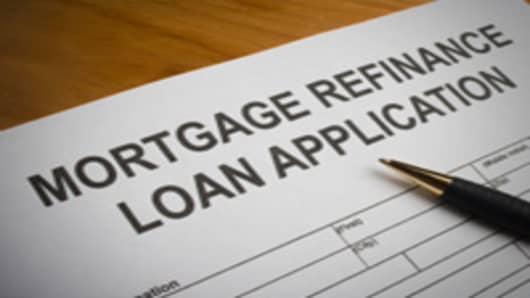The most fundamental consideration in whether a homeowner should refinance an existing mortgage is the break-even point that represents how soon the cost of the refinance will be recaptured through lower monthly payments. But while the break-even point is easy enough to calculate, other factors may also influence your decision and, if it's a go, the type of loan you'll select.
While there is no rule of thumb for the maximum payback period, or break-even point, that makes sense for most borrowers, three years or fewer typically is considered reasonable if you intend to keep your mortgage at least that long.
If you can get a true zero-cost refinance, your break-even point will occur immediately. In that case, it may make sense to refinance your mortgage even if your interest rate is lowered by just an eighth of a percentage point, because you'll save money every month, though the amount may be small, says Bob Walters, chief economist at Quicken Loans. A true no-cost refinance means you pay no money upfront and neither your loan amount nor your interest rate is increased to build any costs into your new loan.
_____________________________________
Looking for a mortgage? Here's help from Bankrate.com:
- Four Things to Know About Refinance
- How Much House Can You Afford?
- Look at New FHA Home Limits
_____________________________________
To calculate a break-even point, divide the anticipated total cost of your refinance by the monthly savings on your loan payment. The result is the number of months that would be required to recoup the cost.
While the break-even point is a useful analysis, the decision to refinance can become more complicated by other factors:
- Your current loan has an adjustable interest rate.
- Your new loan will have a longer or shorter term than your current loan.
- Your new loan will require mortgage insurance.
- You're willing to pay points to lower the interest rate on your new loan.
- You want to cash out equity or consolidate other debts such as a credit-card balance or car loan.
ARM vs. fixed interest rate
Lenders and mortgage brokers say borrowers should opt for a fixed-rate mortgage rather than a hybrid loan or adjustable-rate mortgage, known as an ARM, because the interest rate differential isn't large enough to warrant the higher risk of an ARM.
"There is no question at all that consumers should get a fixed-rate mortgage," says Greg Gwizdz, national sales manager at Wells Fargo Home Mortgage in Des Moines, Iowa.
The decision is a bit more complicated for borrowers who have an ARM and want to eliminate the risk of a higher rate in the future. In such cases, refinancing to lock in a fixed rate might make sense, even if the payback period isn't attractive.


